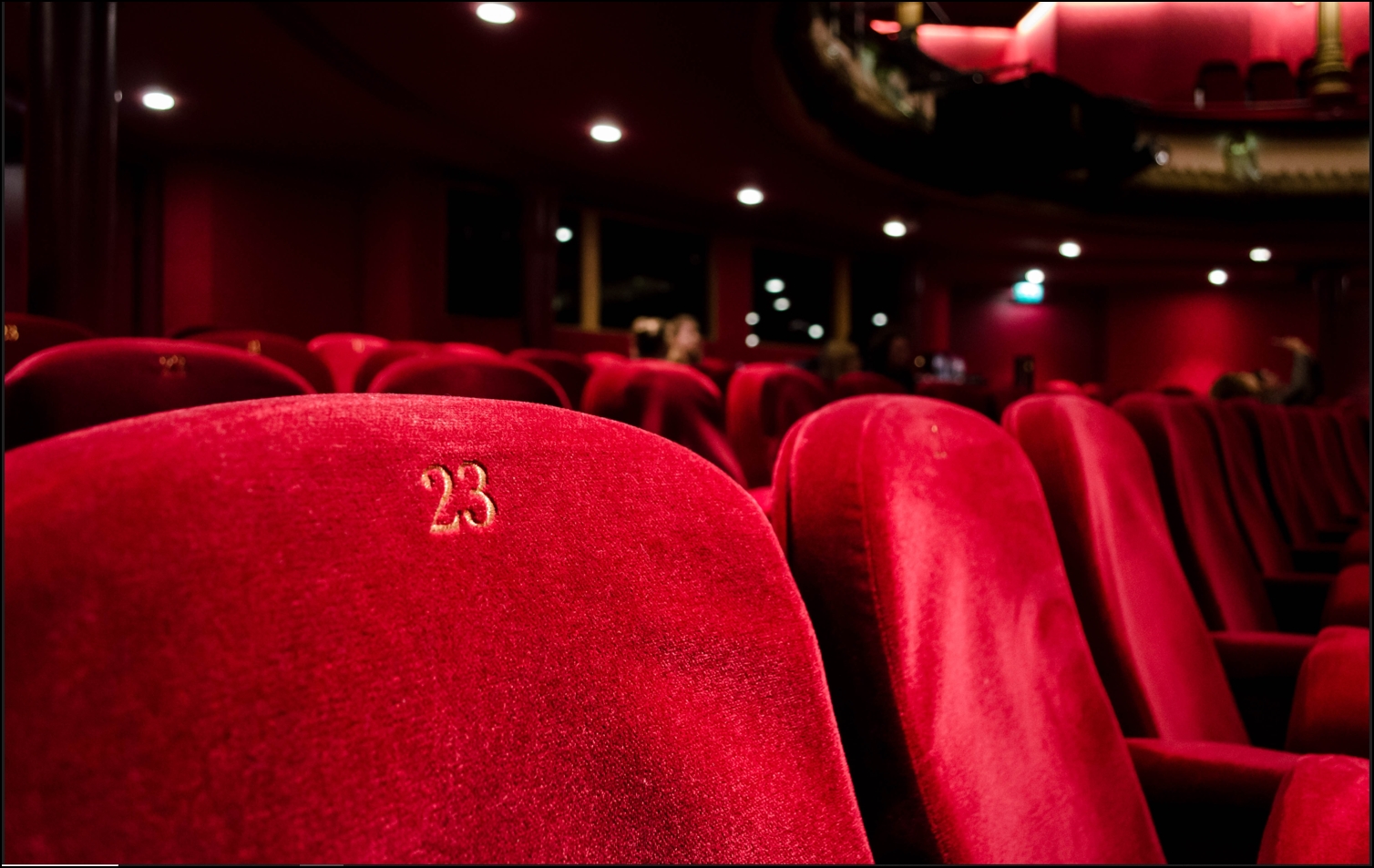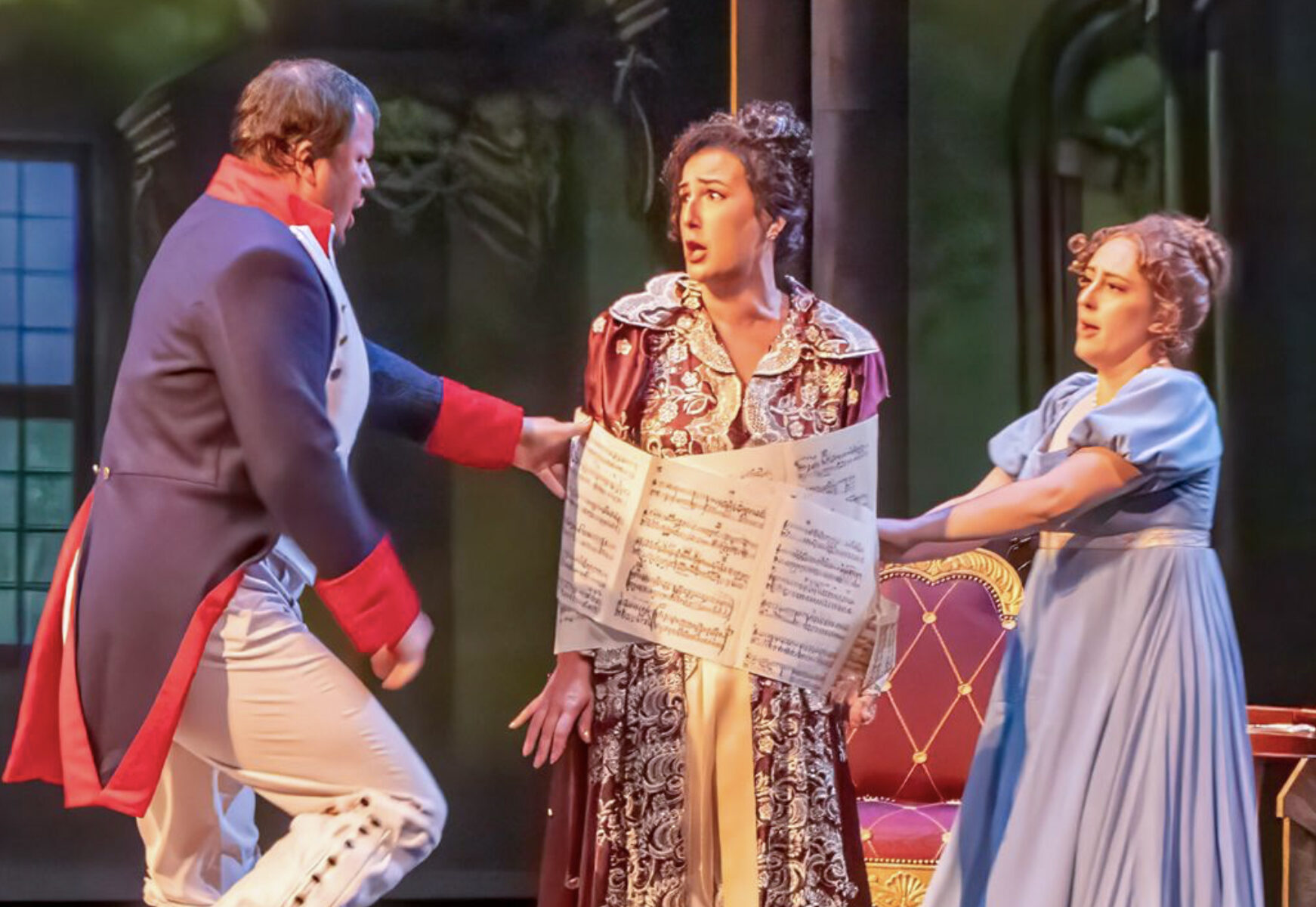by Jeff Dunn
I couldn’t get my fill of the regiment in Donizetti’s opera La fille du régiment. Why? Because Livermore Valley Opera’s regimental chorus was such a scene-stealer. Whenever the outstanding cast of principals had gloriously sung one bel canto aria too many, this eight-man posse of protectors would pop in and provide welcome comic relief. Kudos to chorusmaster Bruce Olstad and stage director Marc Jacobs!
Who is the octet protecting? The Daughter (Marie) is a foundling raised by the regiment she addresses as her “fathers.” We are in the Tyrol of 1809, and the French are battling Austrian sympathizers in an area then under Napoleonic control. The French occupiers are the good guys since Donizetti penned his tuneful theater piece for the Paris Opéra-Comique. No surprise that local boy Tonio changes sides and enlists in the regiment to go after his squeeze Marie. But it turns out she’s the child of the Marquise of Berkenfield, who wants her to marry into nobility.
” … highly recommended …”
Véronique Filloux warmed quickly into her demanding role as Marie, hitting her high notes with power and accuracy, but more importantly, conveying an impish sense of fun as a soldiers’ pal in Act 1 and as a would-be trainee in aristocracy in Act 2. Chris Mosz brought a uniquely sugary voice to the character of Tonio, effortlessly hitting all eight high Cs in Tonio’s famous Act 1 Ah! mes ami … aria, and even adding a higher-than-high C to the unwritten (by Donizetti) ninth one.
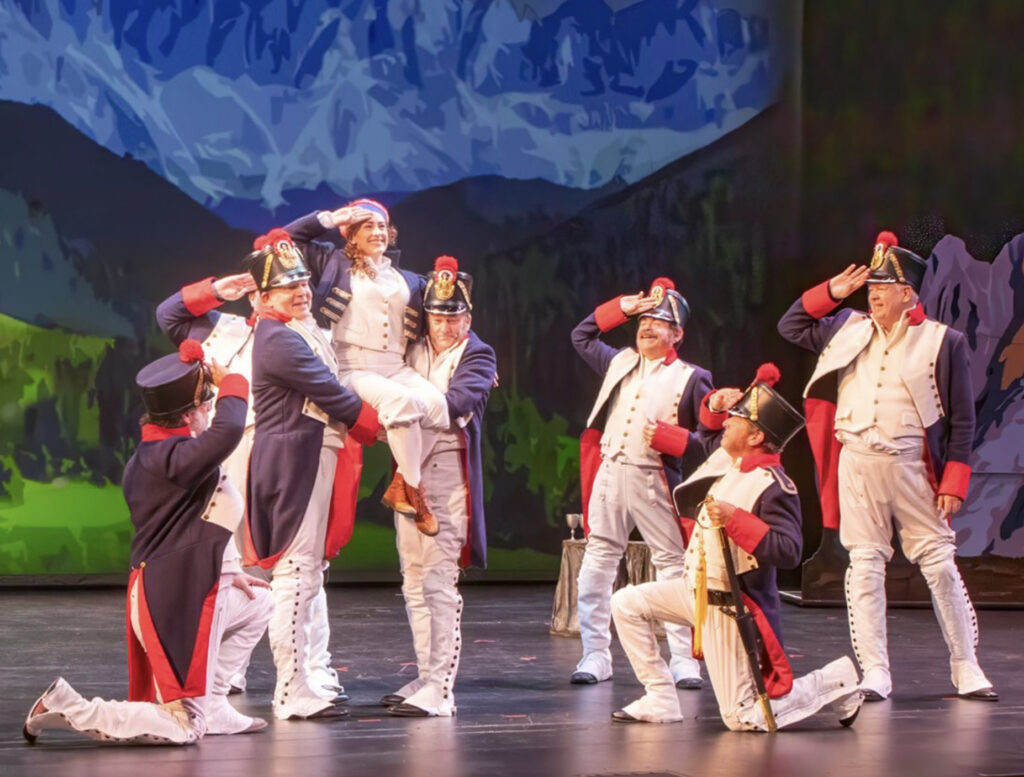
Eugene Brancoveanu’s rich and venue-filling voice and acting were perfect for his role as Sulpice, the sergeant in charge of the octo-posse. Finally, mezzo-soprano Lisa Chavez’ lovely voice was a joy to hear as she negotiated her Marquise’s character change from a snobby fussbudget to a woman who begins to display caring for her once-abandoned child at the cost of her reputation.
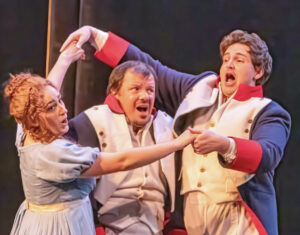
Jean-François Revon’s sets and projection designs were a marvel–simple, colorful, effective, and surprising when cannon-blast lighting effects popped out in distant background hills. Linda Pisano’s beautiful costumes, initially designed for the Utah Opera, were a pleasure to examine in detail during the more extended arias.
Music director Alexander Katsman’s tempos and dynamics were managed with aplomb in Francis Griffin’s reduced-orchestra score displaying little emaciation. This reviewer thought the horn section had a bit of difficulty handling the highly exposed overture opening in the September 28th performance, but the cello section was wonderful for the lead-in to the Par le rang et par l’opulence aria in Act 2.
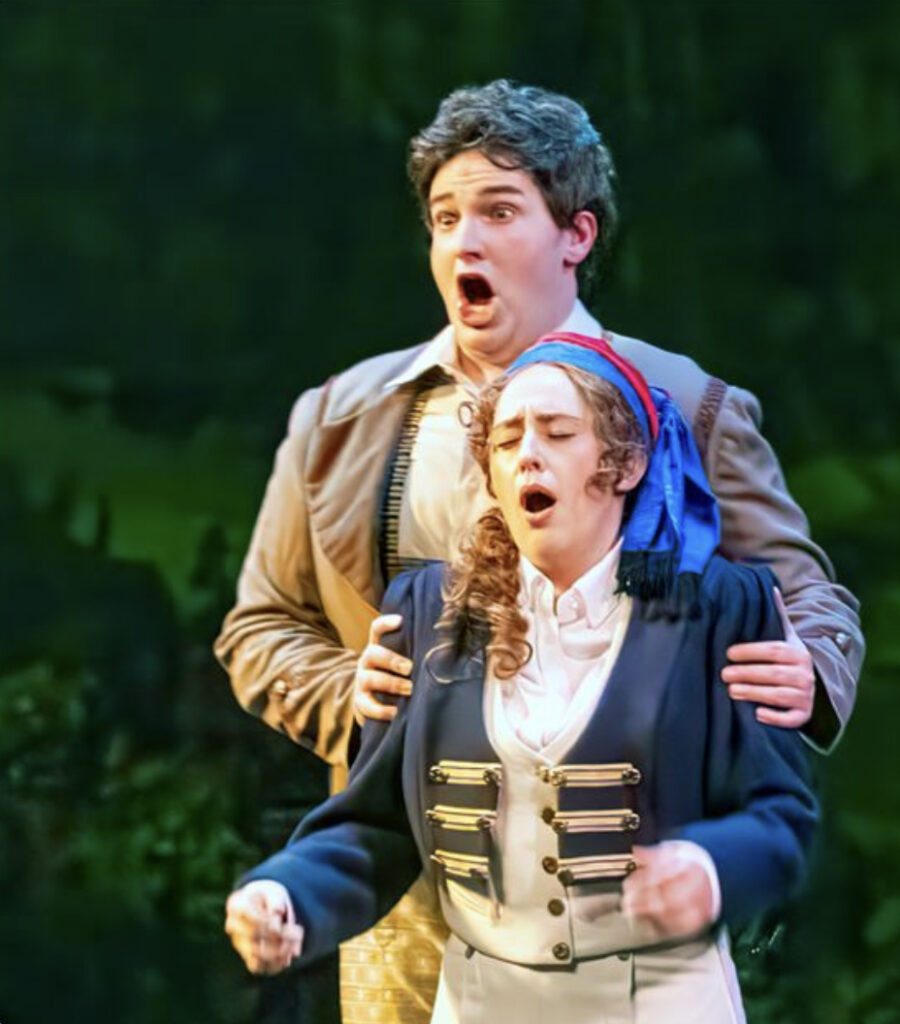
The many laughs, endless melodies, outstanding voices, costumes, and sets make Livermore Opera’s version of La fille a highly recommended and inexpensive way to experience great opera. If you go before it closes on Sunday, October 6th, see if you can hear the clever reference to Rossini’s William Tell overture in Donizetti’s overture. Both operas take place in the Alps.
-30-
 ASR’s Classical Music Section Editor Jeff Dunn is a retired educator and project manager who’s been writing music and theater reviews for Bay Area and national journals since 1995. He is a member of the San Francisco Bay Area Theatre Critics Circle and the National Association of Composers, USA. His musical Castle Happy (co-author John Freed), about Marion Davies and W.R. Hearst, received a festival production at the Altarena Theater in 2017. His opera, Finding Medusa, with librettist Madeline Puccioni, was completed in January 2023. Jeff has won prizes for his photography, and is also a judge for the Northern California Council of Camera Clubs.Contact: [email protected]
ASR’s Classical Music Section Editor Jeff Dunn is a retired educator and project manager who’s been writing music and theater reviews for Bay Area and national journals since 1995. He is a member of the San Francisco Bay Area Theatre Critics Circle and the National Association of Composers, USA. His musical Castle Happy (co-author John Freed), about Marion Davies and W.R. Hearst, received a festival production at the Altarena Theater in 2017. His opera, Finding Medusa, with librettist Madeline Puccioni, was completed in January 2023. Jeff has won prizes for his photography, and is also a judge for the Northern California Council of Camera Clubs.Contact: [email protected]
| Production | Daughter of the Regiment |
|---|---|
| Music by | Gaetano Donizetti |
| Libretto by | Jules-Henri Vernoy de Saint-Georges & Jean-François Bayard |
| Director | Marc Jacobs |
| Producing Company | Livermore Valley Opera |
| Production Dates | Thru Oct 6th |
| Production Address | Bankhead Theater 2400 First St, Livermore, CA 94551 |
| Website | www.lvopera.com |
| Telephone | (925) 373-6800 |
| Tickets | $25 - $110 |
| Reviewer Score | Max in each category is 5/5 |
| Overall | 4/5 |
| Performance | 4.5/5 |
| Music | 4/5 |
| Libretto | 3.5/5 |
| Stagecraft | 4.5/5 |
| Aisle Seat Review Pick? | YES! |
